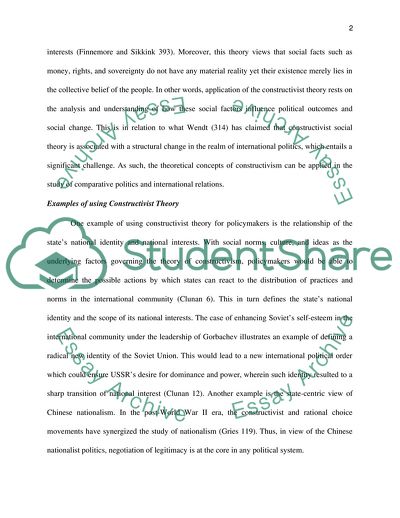Cite this document
(Constructivist and Neo-Liberal Theories Coursework Example | Topics and Well Written Essays - 2250 words, n.d.)
Constructivist and Neo-Liberal Theories Coursework Example | Topics and Well Written Essays - 2250 words. https://studentshare.org/politics/1853343-apply-constructivist-and-neo-liberal-theories
Constructivist and Neo-Liberal Theories Coursework Example | Topics and Well Written Essays - 2250 words. https://studentshare.org/politics/1853343-apply-constructivist-and-neo-liberal-theories
(Constructivist and Neo-Liberal Theories Coursework Example | Topics and Well Written Essays - 2250 Words)
Constructivist and Neo-Liberal Theories Coursework Example | Topics and Well Written Essays - 2250 Words. https://studentshare.org/politics/1853343-apply-constructivist-and-neo-liberal-theories.
Constructivist and Neo-Liberal Theories Coursework Example | Topics and Well Written Essays - 2250 Words. https://studentshare.org/politics/1853343-apply-constructivist-and-neo-liberal-theories.
“Constructivist and Neo-Liberal Theories Coursework Example | Topics and Well Written Essays - 2250 Words”. https://studentshare.org/politics/1853343-apply-constructivist-and-neo-liberal-theories.


